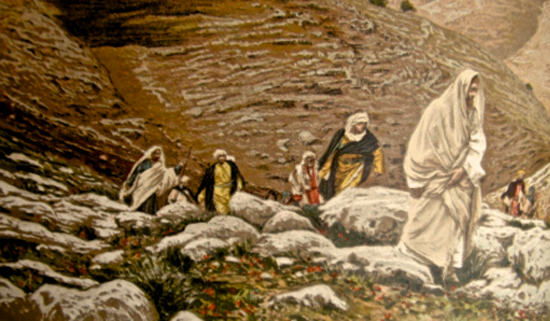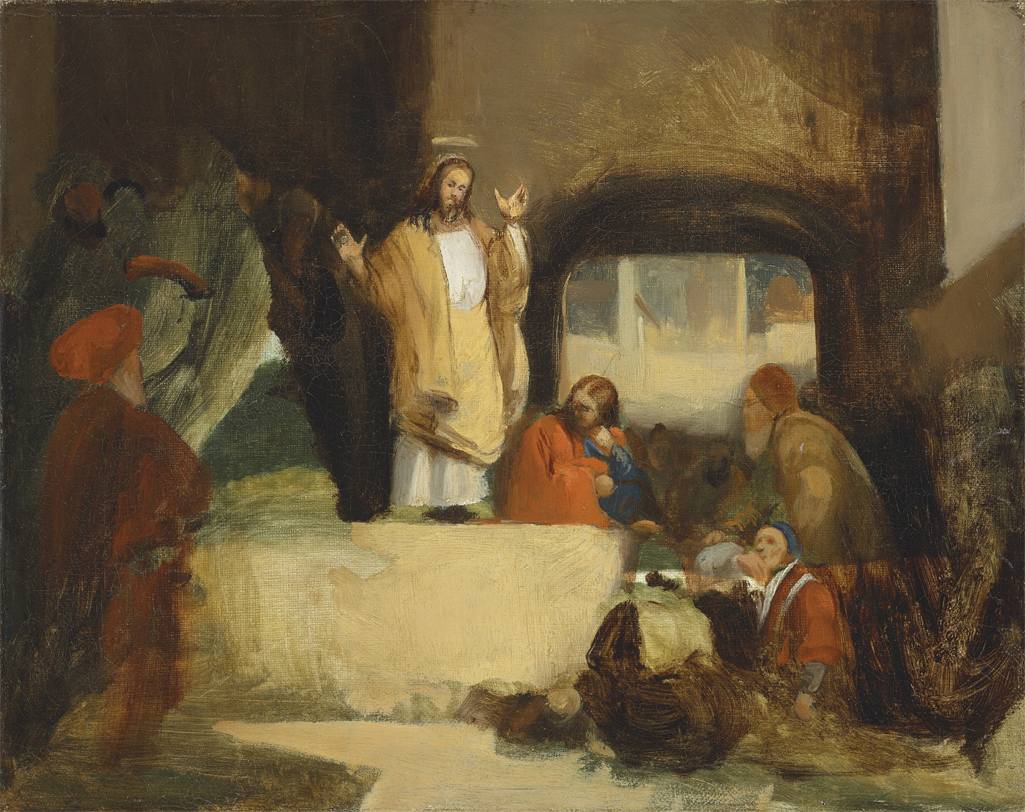Christian Art | George Herbert | The Temple | The Church | The Reprisall
George Herbert | The Temple | The Church | The Reprisall
I have consider’d it, and finde
There is no dealing with thy mighty passion:
For though I die for thee, I am behinde;
My sinnes deserve the condemnation.
O make me innocent, that I
May give a disentangled state and free:
And yet thy wounds still my attempts defie,
For by thy death I die for thee.
Ah! was it not enough that thou
By thy eternall glorie didst outgo me?
Couldst thou not griefs sad conquests me allow,
But in all vict’ries overthrow me?
Yet by confession will I come
Into the conquest. Though I can do nought
Against thee, in thee I will overcome
The man, who once against thee fought.
George Herbert | The Temple | The Church | The Reprisall
The poem contemplates the poet’s relationship to Christ’s sacrifice, focusing on themes of inadequacy, grace, and surrender. It opens with the poet’s realization that human efforts cannot ‘deal with’ or match Christ’s ‘mighty passion’, which represents Christ’s intense suffering and ultimate sacrifice. The poet acknowledges that even if he were to die for Christ, he would still ‘lag behind’, as his own sins are deserving of condemnation. This indicates a sense of spiritual and moral inferiority, highlighting a gap between human and divine capacity for sacrifice and atonement.
The poet then asks for innocence, seeking to attain a ‘disentangled state and free’, implying a desire to be unburdened by sin and guilt. This request underscores the poet’s awareness that only through purity can he fully offer himself to Christ. However, the phrase ‘thy wounds still my attempts defy’ suggests that, despite his intentions, the poet’s efforts at achieving spiritual purity fall short in light of Christ’s crucifixion wounds, symbols of a sacrifice beyond what any human could perform. The line ‘For by thy death I die for thee’ reflects a paradox: the poet’s own spiritual redemption or ‘death to sin’ is achieved through Christ’s sacrifice, not through his own actions.
The next stanza introduces a question of balance and fairness in the relationship between the poet and Christ. The poet reflects that Christ’s ‘eternal glory’ already far exceeds human ability, questioning whether Christ’s additional suffering was necessary to secure this redemptive relationship. By stating, ‘Couldst thou not grief’s sad conquests me allow,’ the poet implies a desire for some shared role in the ‘conquest’ of sin and suffering. However, ‘in all victories overthrow me’ reinforces that Christ’s actions surpass any possible human contribution. Christ’s victory, achieved through Christ’s suffering and sacrifice, entirely overshadows human grief and achievements, leaving the poet in a state of awe but also humility.
In the final stanza, the poet accepts his limitations and decides to embrace a different approach—confession and unity with Christ rather than competition. ‘By confession will I come / Into the conquest’ suggests that admission of sin and the need for grace can offer a form of shared victory. The poet acknowledges that he can ‘do nought / Against thee,’ signifying the futility of human opposition or self-reliance in spiritual matters. Yet, he proposes that through uniting with Christ, he can ‘overcome / The man, who once against thee fought.’ Here, the poet’s struggle shifts from one of achieving parity with Christ to overcoming his own sinfulness. This phrase suggests a transformation in which the poet’s confession and surrender to Christ allow him to ‘conquer’ his former self, who had lived in opposition to divine will.
The poem explores the poet’s journey from recognizing his limitations to accepting that redemption requires surrender to Christ’s grace. Rather than emulating Christ’s sacrifice through self-effort, the poet seeks alignment with it, understanding that his role lies in humility, confession, and reliance on Christ’s completed work. The poet’s perceived inability to match Christ’s sacrifice is ultimately reframed as a path to grace, where surrender, not parity, brings unity.
![]()

![]()








